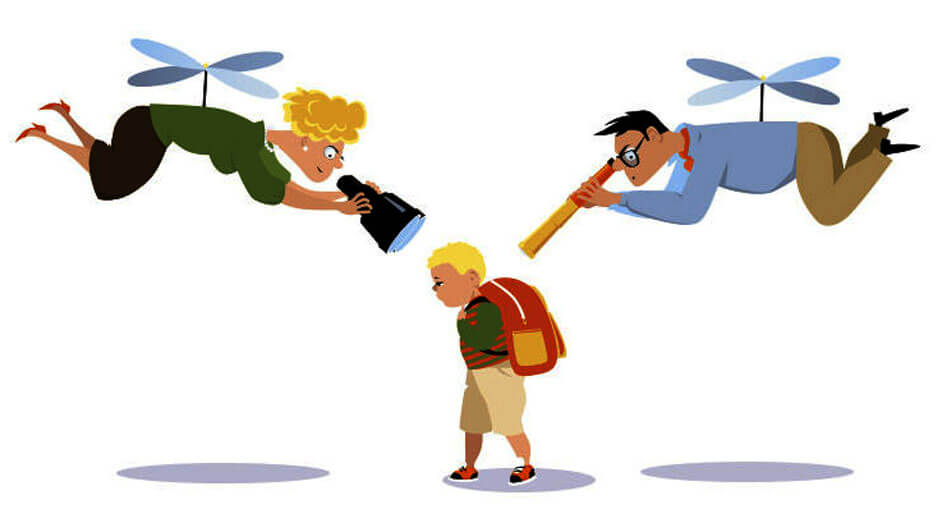Helicopter Parenting: Grounded Perspectives on Overprotection and Independence

Helicopter parenting is a term used to describe an overprotective and excessively involved style of parenting. It refers to parents who closely monitor and control every aspect of their child’s life, often hovering over them like a helicopter. This term gained popularity in the late 20th century, as parenting practices began to shift.
Helicopter parents tend to be highly involved in their child’s daily activities, including academics, extracurriculars, and social life. They may constantly intervene in their child’s affairs, such as completing homework assignments for them, constantly checking their grades, or micromanaging their schedules. They often prioritize their child’s success and well-being above all else and can become overly anxious or intrusive in the process.
While the intention behind helicopter parenting is usually to protect and support the child, it can have negative effects. Here are a few potential drawbacks of helicopter parenting:
- Lack of independence: Constant monitoring and control can prevent children from developing self-reliance and problem-solving skills. They may struggle with decision-making and become overly dependent on their parents.
- Reduced resilience: Helicopter parenting shields children from facing challenges and setbacks, which are crucial for developing resilience and learning from failures. They may struggle to cope with adversity in the future.
- Increased anxiety and stress: The constant pressure to meet high expectations set by their parents can lead to heightened anxiety and stress levels in children. They may feel overwhelmed and have difficulty managing their emotions.
- Impaired social skills: Helicopter parenting can limit opportunities for children to develop social skills and build relationships independently. They may struggle with assertiveness, conflict resolution, and adapting to new social situations.
- Academic issues: Paradoxically, excessive involvement in a child’s academics can hinder their academic performance. When parents constantly intervene, children may not learn to take responsibility for their own education and fail to develop effective study habits.
It’s important to note that not all involved parents are helicopter parents. Being engaged and supportive of your child is beneficial, but it becomes problematic when it crosses the line into excessive control and interference.
Finding a balance between support and allowing children to explore and make their own choices is crucial for their healthy development. Encouraging independence, fostering open communication, and allowing children to experience natural consequences can help them become more resilient, self-reliant individuals.
Picture Courtesy: Google/images are subject to copyright








